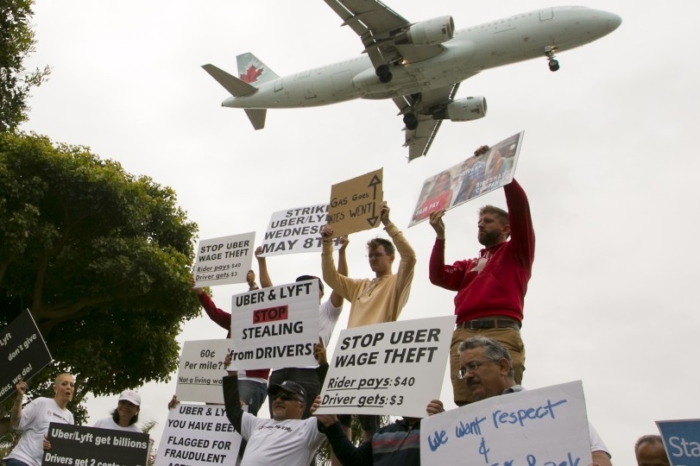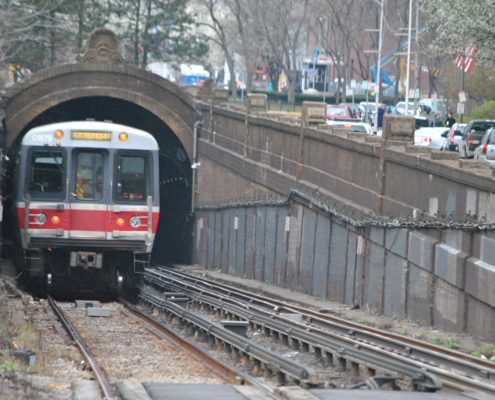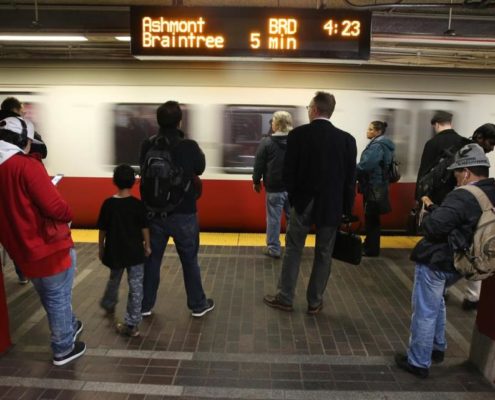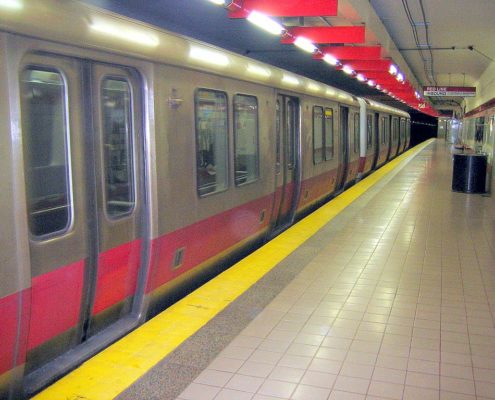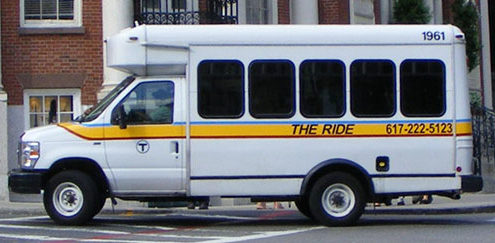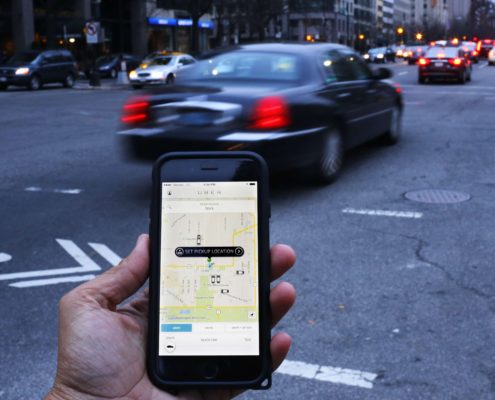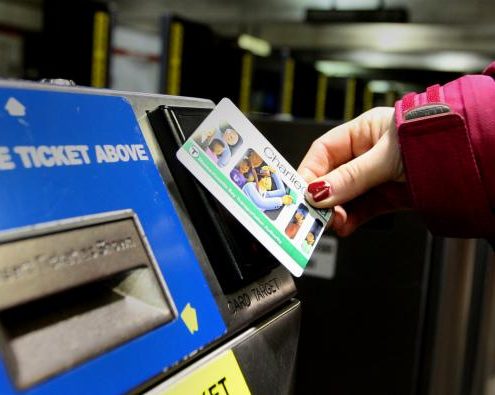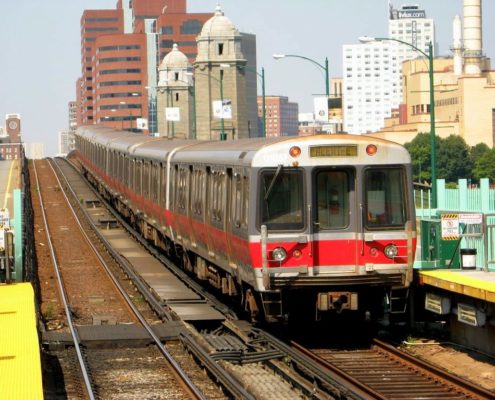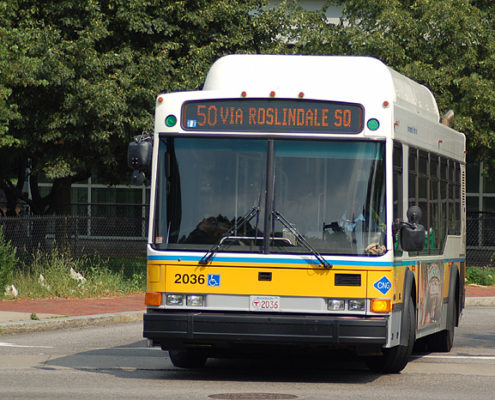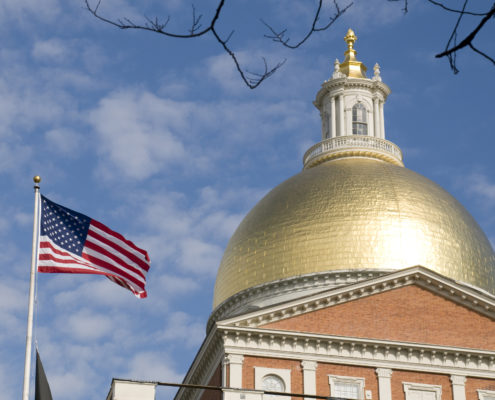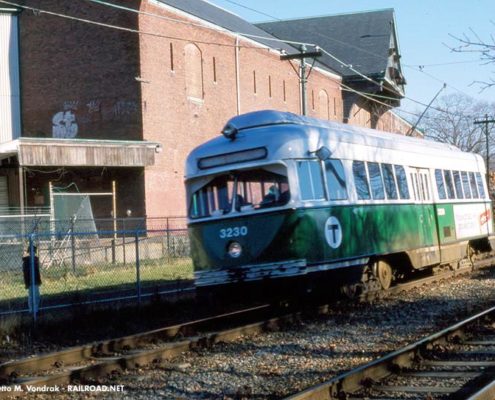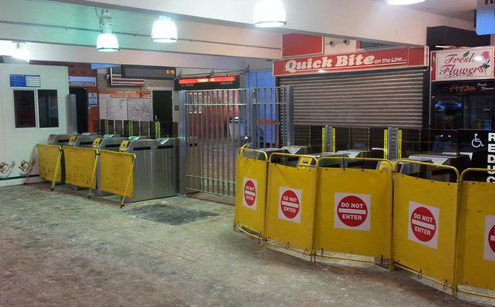Uber May Not Be Perfect, But Do We Want To Give The Transportation Revolution A Flat Tire?
This op-ed appeared on WGBH News.
You’d be right to shake your head at how the press hyperventilated about the “thousands of customers” that were going to be inconvenienced by the so-called “Uber strike.” If you live in the real world, you would, in fact, be hard pressed to find a single customer whose wait was related to the anemic driver participation in the action. The day-after media estimates clocked in at 25 protesters in London, 25 in Los Angeles, a couple of hundred in San Francisco (Uber’s headquarters), and 50 in New York City.
It’s not as if there is no reason for drivers to register their displeasure. While Uber remains a source of needed supplemental income for its remarkably diverse drivers, many of whom are new immigrants and even green card holders, over the last few years it has taken an increasingly bigger bite out of its drivers’ earnings.
So why was a company valued at tens of billions of dollars putting so much effort in countering a few voices and signs? Even token turnout brings reputational risks, but Uber’s real concern was that such protests are the start of a slippery slope. The company knows that caps on its potential growth come from two direct threats — unions and government regulation — and they have seen this movie before in parts of Europe, where it started small and grew into big opposition to the ride-hailing giant.
Today, for example, what had been a fast-growing presence in Rome is now blocked and fading from sight. There, the local taxi cab industry was behind the opposition, but it’s the same drill. In the United States, with private sector union membership continuing to decline, labor leaders are hungry for dues-paying members.
Some of the protesters called for creation of a so-called guild of Uber drivers (a union for contractors with common interests, which would likely later aim to recategorize contract drivers as traditional employees). That, of course, touches investor concerns about the as-yet-unknown Uber business model that makes money. Today, Uber is famous for many things, including losing money. Some excuse the losses as a normal rite of passage for a tech start-up: Losing money now is part of the investment to make a lot of money later.
Leading technology thinker, Peter Thiel, opined in his book “Zero to One,” that big innovation and big money most often occur in parts of the market where the start-up is providing a new service, often without direct competitors. In this way, the company operates somewhat monopolistically by setting prices that generate profits but are not excessive; they can build scale and box out new competitors.
The tech start-ups most at risk of continued losses tend to be in markets where they are in direct competition with existing retailers or direct service providers. Established markets tend to compete on price, so such tech start-ups have to think up ways to make money in a smaller margin world. Amazon successfully became a market leader, losing money for years (which is why it has not been paying taxes) as it built itself to the level of scale where it can squeeze or, in some cases, dictate pricing to its selling partners.
In 2010 the ride hailing industry was an interesting hybrid: A direct service industry with competitors in name only, protected from new market entrants by government restrictions. There were high barriers to entry as is evidenced by taxi medallion auction prices. In 2010, a medallion could be auctioned off for $600,000 or $700,000. Today, the number is in the range of $125,000. The high margins of yesteryear are one of the potential advantages that attracted Uber to the space. Now that Uber and Lyft have gone public, they are under more pressure to make money in the near term. If Uber and Lyft have to raise prices to do that, the question becomes, what happens to their market share?
But that’s not all that interested the company and its investors. If Uber and Lyft become just another glorified cab company, they won’t generate the kind of money investors sought nor the kind of big transportation transformation the founders and now leaders of the companies seek. They have seen themselves as the start of a transportation revolution, and the real business model is premised on automated, that is, driverless cars. That’s where the big money and big innovation are. The question for both companies in the next five to 10 years is whether they will make enough money and fend off unions and government regulators long enough to make money and preserve their capital for big innovation investments that will enable them to lead the revolution.
There are more questions for regular folks like us. Will unionization and regulation stop the transportation revolution? Is the transportation revolution worth the loss of jobs it could bring? More broadly, how do we get our arms around potential job losses in low- and medium-skill sectors like ride-hailing?
Get Updates on Our Transportation Research
Recent Research:

